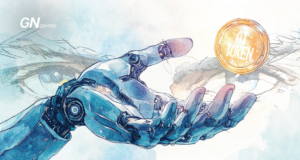Rust: Review of the Programming Language

The Rust programming language has been widely adopted by tech companies. In 2023, Microsoft announced rewriting core Windows libraries in Rust, and Google has been using Rust in its Android code. Rust is the core language of Solana, Polkadot, Near, and many other blockchains. Why is the language popular, and what is it used for? Read on to find out.
On this page
The Rising Popularity of Rust
Rust is a relatively new language, created in 2006 by Graydon Hoare, a software developer working at Mozilla at the time. Initially started as Hoare’s personal project, later, the language received investment and support from Mozilla. After several years of development, Rust's first stable version, Rust 1.0, was released in 2015.
In the launch announcement, the core team mentioned that the goal of creating a new language was to make it easier to build reliable and efficient systems. In 2020, the Rust team at Mozilla was hit by layoffs. The company reduced its direct financial and personnel support for Rust. To keep the project growing, the community and the team founded the Rust Foundation in 2021.
Over time, Rust has gotten a lot of attention from companies and individual developers. It’s an open-source language, known for reducing memory safety bugs without sacrificing performance. According to a Stack Overflow survey, Rust was the most admired language by developers in 2023. The language has been holding this position since 2016.
Rust provides an alternative for C and C++ languages, focusing on high performance, safety, memory usage, and cross-platform development.
Google, which integrated Rust into some parts of its work in 2022, mentioned the efficiency of the language. During the Rust Nation UK 2024 conference, the Director of Engineering at Google, Lars Bergstrom said that the Rust team of the company was twice as productive as teams using C++.
Companies are rewriting some parts of their code in Rust to achieve faster performance and safety. The 2023 annual Rust survey reveals that developer interest and adoption in the language is growing.
Rust in Blockchain Development
Due to its performance and safety, Rust is a popular language in blockchain development. Projects requiring a high level of security and fast transactions increasingly use Rust. Among them is Solana, one of the fastest blockchains, with the ability to process 65,000 transactions per second. Despite the advantages, however, Solana has faced operational issues and network outages several times. On February 25, 2023, for example, the network was down for more than 18 hours. As explained by the team, the technical issues were mainly a result of network congestion and consensus failures. Rust may have also played a part in these issues. Because the language is focused on a high level of safety, it processes extra checks. At times of peak demand, this may make a difference. Further network optimizations are meant to solve this problem.
On the other hand, Rust’s type system, debugging tools, and concurrency features allow Solana to reduce memory-related errors, providing a safer environment for development. The language requires less memory usage, which facilitates transactions and results in lower fees. Another benefit of using Rust in Web3 development is its similarity with C++ and Javascript. Programmers using these languages learn Rust more quickly. Rust is easy to integrate with other popular languages to provide cross-chain communication, and increase blockchain interoperability.
When to Choose Rust
Along with its benefits, Rust is not the right answer in every scenario. Whether to choose Rust as a part of a development project or a personal career depends on which network project requires and needs. Rust is a complex language that may require some time to learn. In 2024, the most used blockchain language remains Solidity. It’s the core language of the Ethereum blockchain, which leads by the number of dapps based on it. On the other hand, Rust is safe, and fast. There’s a demand for Rust developers inside and outside the blockchain industry, expanding job possibilities for programmers.
The Future of Rust
Rust is in trend. It’s a general-purpose language providing safety and high performance. According to its roadmap, the Rust Foundation plans to make it more accessible and scale the ecosystem. The Rust community is expanding, which means more developers are contributing to open-source resources and are ready to collaborate. The increasing number of available resources, improvements, and community growth are expected to make Rust easier for new users to adopt and expand its adoption.
The content on The Coinomist is for informational purposes only and should not be interpreted as financial advice. While we strive to provide accurate and up-to-date information, we do not guarantee the accuracy, completeness, or reliability of any content. Neither we accept liability for any errors or omissions in the information provided or for any financial losses incurred as a result of relying on this information. Actions based on this content are at your own risk. Always do your own research and consult a professional. See our Terms, Privacy Policy, and Disclaimers for more details.

























